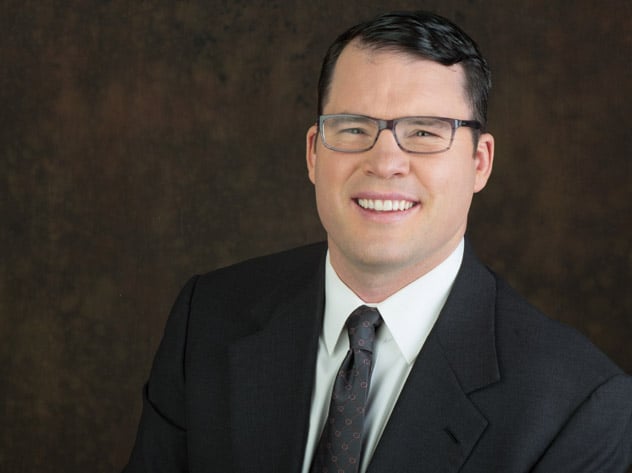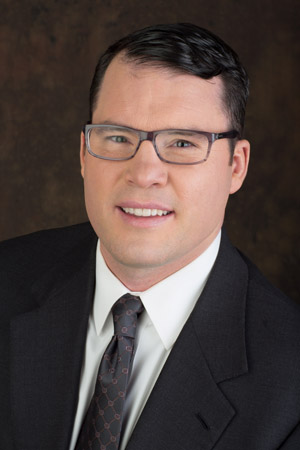The fighter in Marty Flynn led to political success

PHILADELPHIA – For the handful that didn’t know him, their eyes would gradually drift in his direction each time he stepped through the doors of Champs Gym. They even had a nickname for him, “Tom Cruise,” because of his distinguished looks, and possibly because he was the only white guy with the guts to take a four-hour round trip drive from Scranton Wilkes-Barre to get his ass kicked every day.
No matter what Marty Flynn did, it was a fight. Playing football growing up, he played the game like a fighter. Basketball, baseball, he was a fighter in shorts and a glove on. So when he used to walk into Champs, a dingy, hole-in-the-wall, all-black gym in North Philly with its concrete floors and brick walls, and all the dusky, musky ambience of a coal mine, the stares said he didn’t belong.
Flynn made himself belong.

Photo by Brian Fulton/Scranton Times
He attracted all-time great Bernard Hopkins, and, as a budding pro in the early 2000s, was Hopkins’ sparring partner. Later he would use the knowledge he accumulated in the ring to become a two-term Democratic District 113 Pennsylvania state representative, serving Scranton. He could one day be governor. You may not find a more powerful protagonist for boxing today in the United States, other than Arizona senator John McCain.
Flynn, 39, finished his pro career with a 10-2 (5 knockouts) mark and is a walking, living lesson to the benefits of what boxing can do – and where it can lead. Too often we hear the cliched, tragic tales of fighters after their boxing careers are over.
Flynn’s story is the opposite.
“And it’s all because of boxing,” said Flynn, a 1994 Scranton Prep graduate who went on to earn a bachelor’s degree in legal studies at Marywood University in 1999. “I think it gets lost in the translation of the sport. You’re looked down on in a way by being associated with boxing. When I was running for state representative I dealt with the stereotype from my opponent that I was stupid because I’m an ex-boxer. I don’t think boxers are something anyone becomes. I truly believe that you’re born to be a boxer. It was that way my whole life. No matter what I do, it’s a fight. That’s just the way it goes. I took all the good stuff in boxing and applied it to my life.”
Despite both of his grandfathers fighting as pros in the 1940s and ’50s (Matty Flynn and Paul Bradshaw), Flynn wasn’t allowed to fight as a kid.
“My boxing history literally goes back generations,” Flynn said. “I wrestled, played baseball, football. When I went to college, I didn’t like the seriousness of the baseball program at Marywood, so I thought about boxing and went to the Weston Field Irish Boxing Club. I was 19, and six weeks later, I was in the Golden Gloves. I actually won my first two fights. I became obsessed with it. Grandpop Flynn never cared to see me fight. He always used to tell me to get it out of my system. I didn’t get a lot of pushback from my parents because I was on a college boxing scholarship and I submerged myself in amateur boxing. But I also had to put myself through school. I fought Willie Gibbs three times, once in the Olympic Trials, at 165 pounds. I turned pro at middleweight in 2000.”
That’s when Flynn was introduced to the full brunt of the sport – face first. He knew to get better he would have to make the trek to Philly for better sparring. It’s like being a basketball player in the Philadelphia suburbs. You want to be better, you face the best – and the best fighters in Pennsylvania gravitate to Philly.
“I remember when he walked into Champs,” recalled Hopkins, who used Flynn as a sparring partner for his star-turning fights against Felix Trinidad and Oscar De La Hoya. “Marty had that tough demeanor about him. He didn’t care. You know how to fight, you know how to fight in every area of life. You have a guy like Marty Flynn, who used to travel four hours round trip to an all-black gym in North Philly. Understand he’s walking in there, no one knew him. It talks about his character, his heart and determination. He knew he had to come to Philadelphia to become a better fighter. That’s where the better gyms are, the better sparring, and he found Champs Gym, at 26th and Thompson, off Girard Avenue.”
Flynn had some good days and some bad days, according to Hopkins. He had some bloody days and some brave days. And he kept coming back.
“Very few people can travel four hours round trip, not for money, or for a woman, but to get your ass kicked. That isn’t something a lot of people are kicking the door down to do,” Hopkins said. “That’s what Marty Flynn was about. He was called out for sparring because he was ‘the white guy.’ That’s the way it was. I’m being honest here. I saw heart in Marty. That’s what attracted me to him. It was a unique situation and there were guys in there that wanted to beat on ‘the white guy’ who looked like a male model. He never stopped. When you’re a guy everyone wants to fight because they want to beat up a ‘white boy,’ because he came from somewhere else, those guys didn’t understand. I did. I saw a guy who didn’t care about race. I knew the intimidation that could come at Champs. He still fought hard, and he’s still fighting hard as a politician. There is a fighter mentality that never leaves you. Marty Flynn has that fight in him – and he’s doing it in politics.”
Malik Chambers, a member of Hopkins’ camp, remembers the strange looks some of the guys from Champs would give Flynn. He’s known him since 1998, just before Flynn turned pro. The color lines blurred quickly.
“He was the only white guy allowed into Champs, because he could fight,” Chambers said, laughing. “At first, they would beat up on him. Back in Champs in those days, nobody took to him. Then, Marty began holding his own. He earned the respect of everyone in that gym. Guys used to question why he kept coming to get his ass kicked. Then you get to know Marty, and everyone loved him. We used to wonder why he was boxing, because he’s a good-looking guy who’s very intelligent. The respect came pretty fast. Champs was in North Philly, and anyone white around, people thought you’re a cop, or undercover cop. Boxing does that. It breaks down barriers.
“And Marty is a people-person. If you dislike Marty, you dislike yourself. He’s doing a lot politically. He’s helping to build a better Pennsylvania. Marty is more black than he is white.”
Flynn has used the fruits of his modest career to give back through contacts he’s built in the sport. He found a used ring and gathered enough gear to reopen the Irish Boxing Club in Scranton. He’s made a fruitful transition from pro to regular life, refusing to wallow in the what-ifs pro athletes often despair in after their careers are over.
In October 2014, Flynn the middleweight re-emerged on a Harrisburg, Pennsylvania, side street. He made national news when he thwarted a robbery attempt at gunpoint. Three assailants confronted Flynn and Erie state representative Ryan Bizzarro, the grandson of Lou Bizzarro, who once went 14 rounds with Roberto Duran in 1976 for the WBA lightweight title, as they were walking home from an event down the 200 block of Herr Street, near the state Capitol.
“It was a weeknight and Ryan heard a round of chambers from a gun being pulled, and he turns around,” said Flynn, who retired from boxing in 2007. “I was still walking. I turned around and wondered why he stopped. Meanwhile, I have a permit to carry [a gun] and there was a string of robberies lately in the area. I looked and saw a kid in front of him holding a gun at his head. I had a gun in my bag with my safety off. The kid had a hood on and a bandana and he starts mouthing off, and I began reaching for my gun. He didn’t know I was reaching for it. Across the street I hear ‘Yo, he’s got something,’ from what must have been a spotter.
“When the kid pointed the gun at Bizzarro, I pulled my gun. He was running and missing; I was running and missing. They caught these kids within 10 minutesÔÇöall three of them. It’s crazy, but the fighter instinct is always there, to my detriment sometimes. I didn’t fight for the money. It’s who I was and who I am. It finally came out politically. My first time in the ring I felt at home. It’s a feeling I wish I could share with more kids. For as terrible as boxing can be, it can be that great. When you’re fighting and you knock someone out in front of a packed house, you’re never as great as you are than in that one moment. Boxing brings something out of you. It’s a message that needs to be spread more to kids. There’s not a feeling in the world that matches that. In boxing, it’s recognizing movement and body language. It’s the great advantage I have as a politician, because you can recognize body language and movement. I learned more in that ring than any classroom I’ve been in. More kids need to learn the discipline that comes with boxing. You reach that one kid and it makes the whole thing worth it.”















